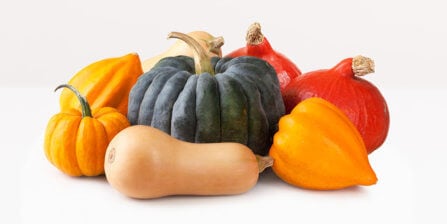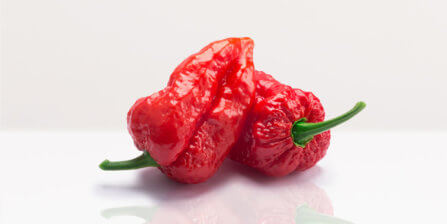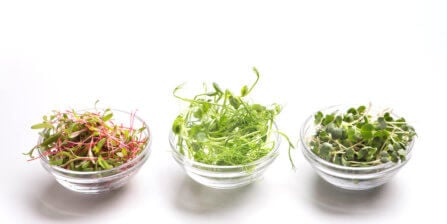Grocery Guides
Tilapia – All You Need to Know | Instacart’s Guide to Groceries

What is tilapia?
Tilapia is the name used when talking about over a hundred different species of cichlid fish. These fish live in freshwater lakes, rivers, and streams and were originally native to Africa. Since 2000, tilapia has been the fourth most eaten fish in the United States because it tastes mild, is easy to prepare, and is inexpensive. The 2 most commonly eaten varieties are the Nile tilapia and the blue tilapia. You can grill, fry, or bake tilapia.
How is tilapia farmed?
Tilapia is often farmed instead of fished for in the wild. They are one of the easiest fish to farm, requiring almost no effort. All you need to start farming tilapia is clean water, a source of oxygen, food, and light. The body of water can be something as small as a backyard pond to a netted area in a lake or river.
There are 3 main parts to the farming process:
- Hatching: The hatching stage consists of everything from spawning the fish and caring for their eggs to raising the baby fry and ensuring they survive.
- Rearing: The rearing stage is when the tilapia are raised from the fry stage to adult size. It involves making sure they receive the food and nutrition required and are in good health.
- Harvesting: The final stage is when the fish are ready for harvest. Once the fish reach their adult size they are caught, filleted, and packaged.
A tilapia fish farming operation is very easy to scale from a personal source of food to a large-scale operation, as long as you have the supplies to keep the water clean and plenty of food. It is not wise to skimp on the quality of food the tilapia eat, because ultimately whatever you feed them will eventually end up in your body.
When is tilapia in season?
The best chance you have to try fresh wild-caught tilapia is in the spring or fall—their spawning season. If you aren’t able to find fresh-caught tilapia in the store, don’t worry, because farmed tilapia is available all year long.
What is the nutritional value of tilapia?
Tilapia is a lean source of protein loaded with vitamins and minerals. A 3.5oz serving of tilapia contains the following:
- 128 calories
- 26g of protein
- 3g of fat
- 0g of carbohydrates
- 78% of the recommended daily intake (RDI) of selenium
- 31% of the RDI of vitamin B12
- 24% of the RDI of niacin
- 20% of the RDI of potassium
- 20% of the RDI of phosphorus
The only thing to be wary of when eating tilapia is its fat content. It has a higher ratio of omega-6 fatty acids than the desirable omega-3 fatty acids.
What should I look for when buying tilapia?
When you are looking for tilapia in the store, it is best to try and find fresh filets. Avoid buying filets that were previously frozen and then thawed. This can ruin the texture of the fish and change the fresh taste. Another thing to look for is where the fish is from.
The Monterey Bay Aquarium’s Seafood Watch List recommends that the healthiest forms of tilapia are raised in raceways or circulating ponds. Any reputable fishmonger should know where their fish comes from before they sell it, so don’t be afraid to ask.
If you are looking to have your groceries delivered, you can easily shop for tilapia via Instacart. After adding a product to your cart, use the “Instructions” option to notify your Instacart shopper about any preferences or specific directions on how to choose the best products. Shop for tilapia.
How to store tilapia
When you buy fresh tilapia filets, the first thing you should do when you bring them home is rinse them off with cold water. Next, pat them dry with a paper towel and wrap them in plastic wrap. Place the filets on ice in the refrigerator until you are ready to cook them. As with any fresh fish, it is best to use it the day you buy it.
If you are buying frozen tilapia filets from the store, put them in an air-tight freezer bag. This will help prevent freezer burn. Thaw the fish in the fridge overnight the day before you plan to cook them to avoid any loss of texture.
How to tell if tilapia is bad
Like any other type of fish, the first sign of tilapia going bad is a strong fishy odor. All fish will have a neutral or light fishy odor when fresh, but once this becomes pronounced, it is a sign of spoilage. Other signs include a slimy texture on the fish or the color changing from white to a gray or brown color. If any of these signs appear, toss the tilapia so you don’t get sick.
What can I substitute for tilapia?
If you need to substitute tilapia in a recipe, you want a fish that has a firm texture and mild flavor. Red snapper is the closest you can get to this, but if you can’t find that either give catfish, striped bass, rainbow trout, or branzino a try.
How to find fresh fish
Tilapia is one of the most popular fish in the United States and is carried at the seafood counter or freezer section of any grocery store. When you are ready to give cooking tilapia a try, have your fresh fish delivered the same day or schedule your grocery delivery for a future date via Instacart.
Most Recent in Grocery Guides

Grocery Guides
15 Best Cheeses for Your Next Charcuterie Board
Let’s face it: The heyday of the store-bought party platter is long gone. Now, the duties of a good host often include curating an impressive charcuterie board. But where do you begin? Charcuterie boards typically…
Jan 21, 2025
Grocery Guides
Guide to Movie Night Snack Delivery
Planning the perfect movie night means getting cozy, choosing a favorite film and gathering all the right treats. With movie night snack delivery, you can skip the hassle of a grocery run and have delicious…
Dec 19, 2024
Grocery Guides
9 Best Cheese for Pasta: Melting, Grating & More Explained
The right cheese can elevate your pasta instantly, but choosing the best cheese for pasta can be tricky with so many options. Whether you’re aiming for a creamy, melty finish or a sharp, savory kick…
Dec 19, 2024

 Squash – All You Need to Know | Instacart Guide to Fresh Produce
Squash – All You Need to Know | Instacart Guide to Fresh Produce  Ghost Pepper – All You Need to Know | Instacart Guide to Fresh Produce
Ghost Pepper – All You Need to Know | Instacart Guide to Fresh Produce  Sprouts – All You Need to Know | Instacart Guide to Fresh Produce
Sprouts – All You Need to Know | Instacart Guide to Fresh Produce 

